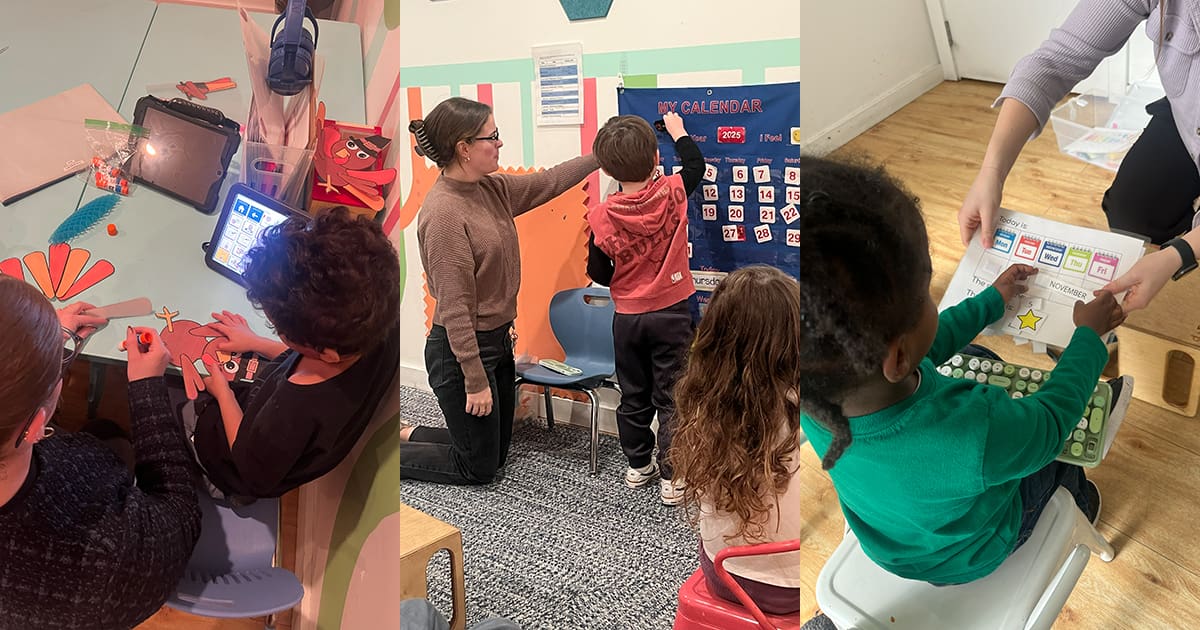Share this Post

Listening is an essential skill that helps children build connections, follow directions, and engage meaningfully with the world around them. For children with autism, developing strong listening skills can often be a challenge due to differences in communication, sensory processing, and attention. However, with the right support, these children can make remarkable progress.
At CST Academy, we understand the unique needs of children with autism and are committed to helping them develop listening skills through individualized, evidence-based approaches. By creating a nurturing environment and using tailored strategies, we empower children to improve their listening abilities and thrive in their daily lives.
Why Listening Skills Matter for Children with Autism
Listening is more than just hearing words—it’s about processing and understanding the information being shared. For children with autism, developing listening skills plays a critical role in:
- Improving Communication: Listening helps children understand verbal cues, making it easier for them to respond and engage in conversations.
- Building Relationships: Strong listening skills allow children to connect with peers, family members, and teachers.
- Following Directions: Listening enables children to process instructions, contributing to success in school and daily routines.
- Enhancing Social Interaction: Listening helps children pick up on social cues, fostering positive interactions with others.
Children with autism may struggle with listening for various reasons, such as difficulty filtering out background noise, focusing attention, or interpreting the meaning of spoken language. With targeted support, these barriers can be addressed, helping children build confidence and independence.
How CST Academy Supports Listening Skills Development
At CST Academy, we integrate listening skills development into every aspect of our therapeutic preschool programs. Our multidisciplinary team includes speech-language pathologists, occupational therapists, and behavioral specialists who work together to provide comprehensive care. Here’s how we help:
1.Individualized Assessments
Every child at CST Academy begins their journey with a detailed assessment to identify their strengths and areas of need. This allows us to create a personalized plan focused on improving listening skills as part of their overall development.
2.Speech and Language Therapy
Our speech therapists use targeted interventions to improve receptive language (understanding what is heard) and auditory processing skills. Activities like following simple directions, identifying sounds, and participating in interactive games help children practice listening in a supportive setting.
3.Play-Based Learning
We incorporate listening practice into play activities, such as musical games, storytime, and imaginative role-play. These fun, engaging activities encourage children to focus on sounds, respond to verbal cues, and build their listening stamina.
4.Sensory Integration Techniques
For children who experience sensory processing challenges, we use sensory integration strategies to help them better manage auditory input. This includes creating a calm, predictable environment where they can focus on listening without feeling overwhelmed.
5.Social Skills Groups
Listening is a key component of social interaction. In our small group settings, children practice active listening during peer conversations, turn-taking games, and collaborative activities, helping them connect with others and build relationships.
6.Parent Collaboration
We work closely with parents to extend listening practice into the home. Our team provides practical strategies and resources, such as games, routines, and exercises, to help families support their child’s progress.
Simple Activities to Boost Listening Skills at Home
Parents can play an important role in helping their child develop listening skills. Here are some activities to try at home:
- Sound Games: Use simple games like “Simon Says” or “I Spy” to encourage active listening and following directions.
- Storytime: Read books together and ask your child questions about the story to engage their listening and comprehension skills.
- Music Play: Sing songs or play instruments together, focusing on listening to rhythms and melodies.
- Auditory Scavenger Hunt: Create a list of sounds (e.g., a ticking clock, running water) for your child to identify around the house.
- Daily Routines: Give simple, step-by-step directions during everyday tasks, such as setting the table or getting ready for bed.
These activities are fun and easy to incorporate into daily life, making listening practice a natural part of your routine.
The Benefits of Improving Listening Skills
Focusing on listening skills can have a profound impact on a child’s overall development. Some of the key benefits include:
- Improved Communication: Better listening leads to stronger understanding and use of language, helping children express themselves more effectively.
- Greater Independence: Listening skills help children follow instructions, navigate daily routines, and complete tasks independently.
- Enhanced Social Connections: Listening helps children engage in conversations, understand others’ perspectives, and build meaningful relationships.
- Academic Success: Strong listening skills are essential for understanding lessons, participating in group activities, and thriving in a classroom environment.
At CST Academy, we celebrate these achievements and work tirelessly to help every child reach their full potential.
Why Families Trust CST Academy
CST Academy is more than a therapeutic preschool—it’s a place where children with autism are supported, empowered, and celebrated for who they are. Families choose CST Academy because of our:
- Expert Team: Our therapists are highly trained in evidence-based approaches to support listening skills and overall development.
- Individualized Care: We tailor every program to meet the unique needs of each child.
- Nurturing Environment: We create a warm, inclusive space where children feel safe and motivated to learn.
- Parent Collaboration: We partner with families to ensure that progress extends beyond the classroom and into everyday life.
Take the Next Step with CST Academy
Improving listening skills can open new doors for children with autism, helping them grow in confidence, communication, and connection. At CST Academy, we are here to guide your family every step of the way.
Contact us today to learn more about our programs and how we can help your child develop essential listening skills and thrive.
Discover Our Pediatric Therapy & Autism Care
ABA Therapy
Support for children with autism.
Autism Evaluation
Expert assessments to identify child needs.
Pediatric Therapy Services
Speech, Occupational, Feeding, and Physical Therapy.
Therapeutic Preschool
A classroom environment designed for early learners with unique needs.

How CST Academy Builds Listening Skills in Children with Autism
Personalized Autism Care That Strengthens Attention and Understanding
Developing listening skills in children with autism is essential for improving communication, following directions, and building meaningful connections. At CST Academy, our individualized autism care plans include targeted strategies to enhance auditory processing, attention, and receptive language. Through play-based learning and supportive therapy, we help children become more engaged, responsive, and confident listeners.

Find the Best Care for Your Child




